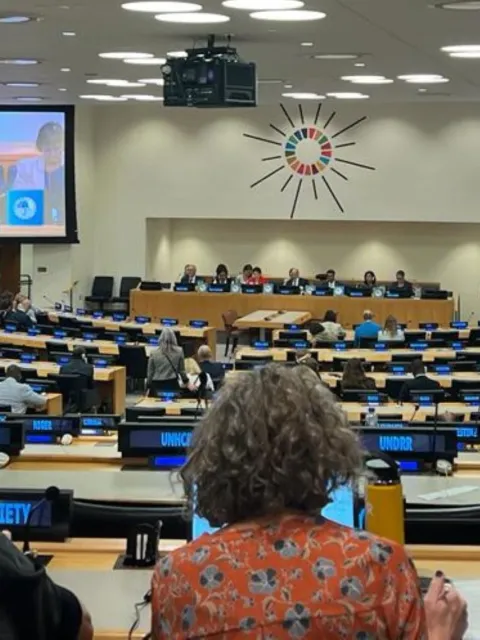A multi-stakeholder dialogue on Universal Health Coverage for cancer in Asia
UICC-ARO brings together major stakeholders in Japan to discuss ways of improving access to cancer care in Asia

The UICC Asia Regional Office (UICC-ARO) successfully convened a fruitful Government-Academia-Industry Dialogue at United Nations University in Tokyo, which brought together parliamentarians, representatives of the WHO and Japanese government agencies and NGOs, senior executives of pharmaceutical and other companies, and leading members of Japan’s cancer research community. This meeting provided a valuable opportunity for stakeholders from all sectors of society to discuss ways in which Japan can develop a multi-sectoral approach that will promote access to cancer care and support initiatives for UHC for cancer in Asia.
UICC-ARO Director Hideyuki Akaza and Haruhiko Hirate (Chair of International Affairs Committee, JPMA) co-chaired the meeting. At the outset it was noted that with cancer now firmly on the global health agenda with the adoption of the WHA Cancer Resolution, countries around the world are coming to grips with the necessity for concerted and cooperative action on cancer prevention and control. Co-chair Haruhiko Hirate kicked off discussions by highlighting the Access Accelerated and C/Can 2025 initiatives, noting that these seek to address issues of how to deliver cancer care in lower and middle-income countries.
Tetsuo Noda (Chair, Executive Committee, UICC-Japan) noted that UICC-Japan has long been an active supporter of UICC initiatives in Asia and that he hoped that this meeting would act as a first step to creating policy recommendations and galvanizing action towards UHC for cancer across Asia through the activities of UICC-ARO.
Norihisa Tamura (Diet member; Chair, WHO Parliamentarians Federation) noted that the government is already focusing on international healthcare initiatives, citing the Asia Health and Human Well-being Initiative and noting the outcomes of the UHC Forum held in Tokyo in December 2017. He expressed the hope that this cross-sectoral dialogue would result in the formulation of recommendations that would help to inform government policy into the future, particularly with regard to the potential for public-private partnerships. He also noted the importance of providing input into the formulation of the WHO Cancer Report, which was discussed in January when Andre Ilbawi (Medical Officer, Cancer Control, WHO) visited Japan and met with UICC-Japan, ARO and Masahiro Sasaki (Cancer Control, MHLW), noting that the outcomes of this dialogue could provide valuable insights in the formulation of such reports.
Keizo Takemi (Diet member), who had convened the kick-off meeting in December 2017 that led to the current meeting, stressed the need to harness the current political momentum for global health and ensure the inclusion of cancer care and control in future initiatives. He noted that the healthcare sector is one that is very competitive, and that time is of the essence. Kazunari Asanuma (ADG for Health Sciences, MHLW) noted the outcomes that UICC-ARO has achieved since its inception in 2006 and expressed his expectations for this latest initiative.
Kenji Yasukawa (President and CEO, Astellas Pharma Inc.) noted that it would be important for companies to engage in initiatives from a business angle, rather than in the context of CSR-related efforts and stressed the importance of all stakeholders working together.
Toshio Takiguchi (President and CEO, Canon Medical Systems Corporation) stressed the importance of early discovery of cancer as a cost-effective way of responding to the growing challenge of cancer in Asia and pointed to the benefits that Japanese technologies and expertise could provide in this area.
Norie Kawahara (University of Tokyo) emphasized the importance of cultural aspects of well-being to advance UHC and noted that multidisciplinary studies and multisectoral interactions will be of the greatest importance.
Hideyuki Akaza thanked participants for attending the dialogue session, which marks the first step in efforts to pool resources and information, and noted that with various key international meetings due to be held in 2018 and 2019, now was the time to coalesce opinions and identify a concrete direction for action.
Last update
Friday 07 June 2019
